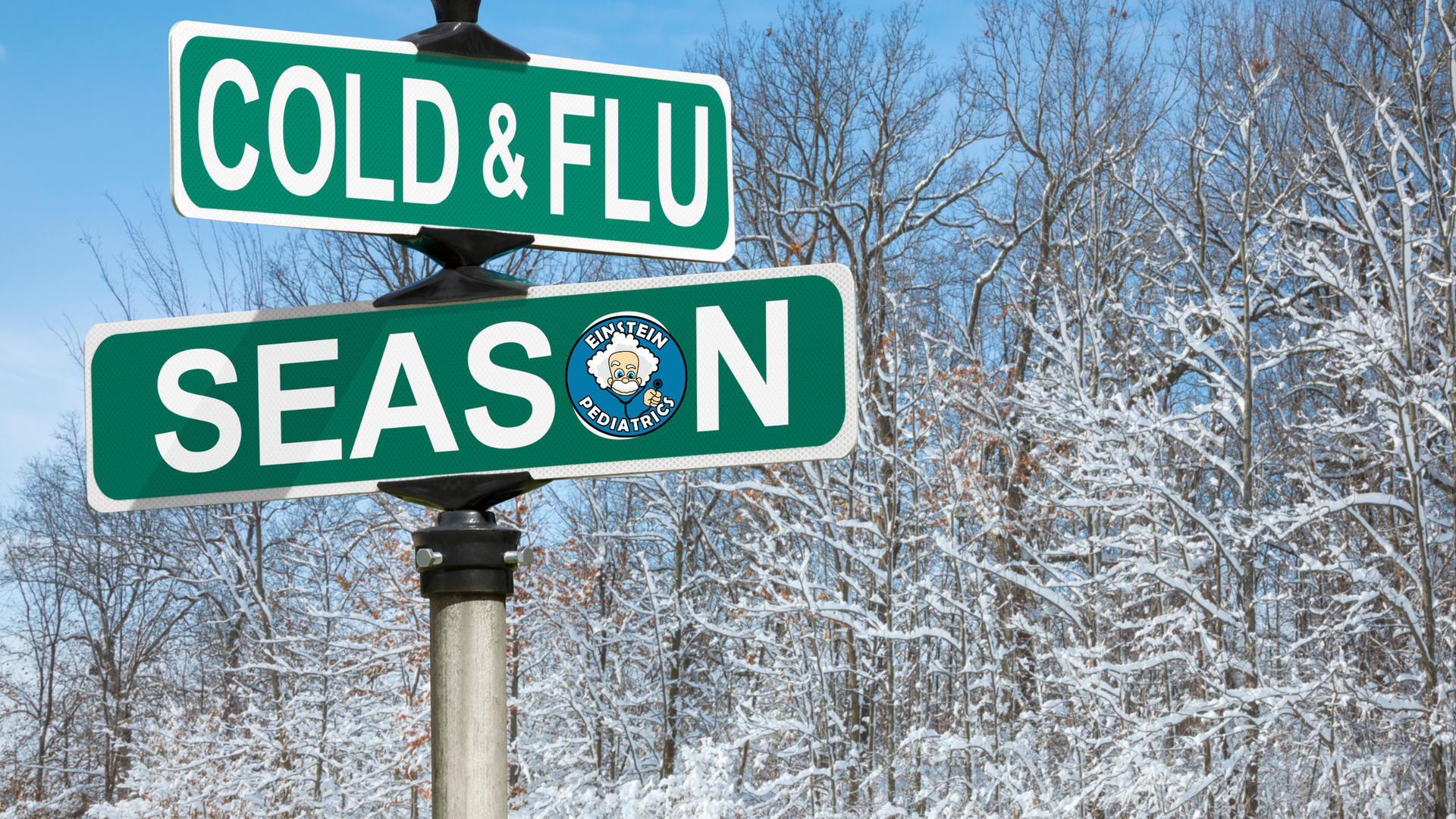
Spring weather is finally here in Northern Virginia! As the weather warms up, kids are ready to head outside — and we love to see it. Outdoor play is great for physical health, mental well-being, and social development. At Einstein Pediatrics, we want to make sure your child enjoys every sunny day safely. Here are simple, important safety tips based on expert advice from the American Academy of Pediatrics (AAP), the Centers for Disease Control and Prevention (CDC), and HealthyChildren.org. 1. Always Wear a Helmet Whether your child is riding a bike, scooter, or skateboard, a helmet is a must — every ride, every time. Helmets should fit snugly and sit level on your child's head, covering the forehead. According to the AAP, helmets can reduce the risk of serious head injury by up to 85%. Look for helmets labeled "CPSC certified," which meet national safety standards. Quick Tip: Have your child help pick out their helmet — they’ll be more likely to wear it without a fuss! 2. Check Equipment Before Play Before your child heads out, check bikes, scooters, and skateboards for: Properly working brakes Fully inflated tires No loose parts or cracks A few minutes of inspection can prevent accidents and injuries. 3. Dress for Visibility Children are harder to spot by drivers, especially in the early evening. Bright-colored clothing, reflective gear, or even a simple reflective sticker on a helmet or bike can make a big difference. The CDC recommends dressing kids in bright, fluorescent, or reflective colors anytime they are near traffic. 4. Set Ground Rules for Street Safety Remind children to: Always ride or walk on the sidewalk when possible Cross streets at crosswalks Walk their bike across busy intersections (don’t ride across) For younger children especially, adult supervision is critical when they’re near roads. 5. Protect Against Sun and Bugs Even in spring, UV rays are strong. Apply sunscreen (SPF 30 or higher) before outdoor play and reapply every two hours. Insect bites are also more common now, so it's a good idea to use insect repellent if your child will be outside for long periods, especially in grassy or wooded areas. Pro tip: Choose a sunscreen and bug spray labeled safe for kids — and never use combined products (sunscreen + bug spray combos are less effective). 6. Stay Hydrated Spring temperatures can sneak up fast! Remind your child to take water breaks, especially during long periods of outdoor play or sports. Encourage plain water as the best choice — skip sugary sports drinks unless your pediatrician specifically recommends them. Final Thoughts Spring is a wonderful time to build healthy habits that last all year. A little preparation goes a long way toward preventing injuries and helping your child enjoy everything the season has to offer. If you have any questions about bike helmets, sunscreen, or if your child needs a sports physical this spring, Einstein Pediatrics is here to help. Call us anytime — we’re your partners in raising strong, healthy kids. Sources: American Academy of Pediatrics - Bicycle Safety CDC - Helmet Safety HealthyChildren.org - Sun Safety

Spring is a wonderful time filled with blooming flowers and warmer weather. However, for many children, it also means the start of seasonal allergies. As parents, it's important to recognize allergy symptoms and know how to help your child feel better. What Are Seasonal Allergies? Seasonal allergies, also known as hay fever or allergic rhinitis, happen when your child's immune system reacts to allergens like pollen from trees, grasses, and weeds. Common symptoms include: Runny or stuffy nose Sneezing Itchy or watery eyes Coughing Itchy throat or ears These symptoms often appear during specific times of the year when certain plants release pollen. Tips to Help Your Child Here are some ways to manage your child's seasonal allergies: Keep Windows Closed: During high pollen times, especially on dry, windy days, keep windows shut to prevent pollen from entering your home. Use Air Conditioning: Air conditioners can help filter out pollen and keep indoor air clean. Shower After Outdoor Play: Have your child bathe and change clothes after playing outside to remove pollen from their body and hair. Wash Bedding Regularly: Clean bed linens in hot water weekly to eliminate allergens like dust mites. Consider Medications: Over-the-counter antihistamines can relieve symptoms like sneezing and itchy eyes. Always consult your pediatrician before giving your child any medication. Limit Outdoor Activities During High Pollen Counts: On days when pollen counts are high, try to keep your child indoors, especially during midday when pollen levels peak. Consult Your Pediatrician If your child's allergy symptoms persist or worsen, give us a call. We can provide guidance and may refer you to an allergy specialist if needed. At Einstein Pediatrics, we're here to support you and your child through every season. Feel free to reach out with any questions or concerns about managing seasonal allergies.

Flu season is here, and if your family hasn’t been hit yet, chances are you know someone who has! This year’s flu strain is causing the usual fever, cough, sore throat, and body aches—but for young kids, especially those under five, the flu can sometimes take a more serious turn. So, what can you do? Here’s a breakdown of how to care for your child at home, what treatments are available, and when to call your pediatrician. Flu Symptoms to Watch For Flu symptoms often come on quickly and may include: ✔️ Fever (often high) ✔️ Chills and body aches ✔️ Sore throat and cough ✔️ Runny or stuffy nose ✔️ Fatigue ✔️ Headache ✔️ Vomiting or diarrhea (more common in kids than adults) Home Care: Helping Your Child Feel Better Most kids with the flu can recover at home with these simple steps: 🛏 Rest – Encourage plenty of sleep to help their immune system fight the virus. 💧 Hydration – Offer small, frequent sips of water, electrolyte drinks, or warm broths to prevent dehydration. 🌡 Fever & Pain Relief – Acetaminophen (Tylenol) or ibuprofen (Motrin) can help with fever and body aches (ask us if you're unsure about dosing). Never give aspirin to children—it’s linked to Reye’s syndrome. 🍲 Gentle Nutrition – Offer easy-to-digest foods like toast, applesauce, or soup if they’re up for it. Treatment Options: Do You Need Tamiflu? For certain kids—especially those under 2, with asthma, or other high-risk conditions—antiviral medications like Tamiflu (oseltamivir) may be recommended. These work best when started within 48 hours of symptoms and can help shorten the illness. However, most healthy kids recover with home care alone. When to Call the Doctor 🚨 Seek medical attention if your child: Is under 3 months old and has a fever Has difficulty breathing (fast breathing, ribs pulling in, or wheezing) Shows signs of dehydration (dry lips, no tears, fewer wet diapers) Has a persistent fever (lasting more than 3-4 days) Is extremely irritable or hard to wake up Symptoms seem to improve, then suddenly worsen For high-risk kids—like infants, those with asthma, heart disease, or weakened immune systems—call us at the first sign of flu symptoms. Flu Prevention: It’s Not Too Late for a Flu Shot! The best way to protect your family is with the annual flu vaccine. If your child hasn’t had theirs yet, it’s not too late! The flu shot helps prevent severe illness and hospitalizations, especially in young kids. If you have any concerns or your child is struggling with flu symptoms, give our office a call. We’re here to help!

Winter can be a tough season for your child’s skin. The combination of cold, dry air outdoors and heated, low-humidity air indoors often leads to dryness, itching, and irritation. But don’t worry! With a few simple strategies, you can help protect and soothe your child’s skin this winter. Why Does Winter Cause Skin Problems? According to the American Academy of Dermatology (AAD), winter air has lower humidity, which dries out the skin. Add in wind exposure, indoor heating, and long, hot baths, and it’s a recipe for discomfort. Children, with their delicate and sensitive skin, are particularly vulnerable to these changes. Top Tips for Winter Skin Care 1. Moisturize Frequently • Apply a fragrance-free, thick moisturizer or ointment like petroleum jelly immediately after bathing. • Look for products labeled “hypoallergenic” or “for sensitive skin” to avoid irritation. • Keep a small tube of moisturizer handy for reapplication throughout the day, especially after handwashing. 2. Shorten Bath Time • Stick to 5-10 minute baths using lukewarm (not hot) water. • Use a gentle, fragrance-free cleanser only when needed. • Pat skin dry gently and apply moisturizer while the skin is still damp to lock in hydration. 3. Use a Humidifier • Running a humidifier in your child’s bedroom at night can add moisture to the air and prevent their skin from drying out. • Be sure to clean the humidifier regularly to avoid mold and bacteria buildup. 4. Dress Smartly for Cold Weather • Choose soft, breathable fabrics like cotton for base layers. • Avoid wool or rough fabrics that can irritate the skin. • Cover exposed areas with gloves and hats, but avoid scarves for younger children due to potential safety risks. 5. Prevent Chapped Lips • Apply a fragrance-free lip balm or petroleum jelly regularly, especially before heading outside. • Encourage your child not to lick their lips, as this can worsen dryness. 6. Protect Against Sunburn • The AAP reminds us that even in winter, sun protection is essential. Snow reflects UV rays, increasing the risk of sunburn. • Use a broad-spectrum sunscreen with SPF 30 or higher on exposed skin, and don’t forget about lips and ears. When to Call Your Pediatrician Sometimes, winter skin issues go beyond simple dryness. If your child has: • Persistent redness, cracking, or itching • Patches of thickened, rough skin • Any signs of infection like swelling, warmth, or oozing … it’s time to schedule a visit. Conditions like eczema or skin infections may require additional care. Final Thoughts A little extra care can go a long way in keeping your child’s skin soft, smooth, and healthy this winter. If you have questions or concerns about your child’s skin, we’re always here to help. Stay warm, stay hydrated, and enjoy the season with peace of mind knowing your little one’s skin is protected! Sources: American Academy of Dermatology, American Academy of Pediatrics

As temperatures drop and winter weather sets in here in Northern, VA., it’s essential to revisit an often-overlooked aspect of child safety: car seats. While bulky coats and snowsuits keep little ones warm, they can also compromise car seat safety. Here’s what every parent needs to know to keep their children safe and snug in the car this winter. The Dangers of Puffy Coats in Car Seats Winter coats and snowsuits create a gap between your child and the car seat harness. In a crash, the fluffy padding compresses, leaving the harness too loose to properly protect your child. This can lead to increased risk of injury, as the child may shift significantly or even be ejected from the seat. How to Keep Kids Safe and Warm Follow these tips, backed by pediatric safety experts and organizations like the CDC, AAP, and JAMA: Dress in Layers Start with snug, thin layers like a onesie or thermal shirt. Add fleece or a light sweater for extra warmth. Avoid bulky outerwear while your child is strapped in the car seat. Use a Blanket or Car Seat Cover. After securing your child in the car seat, drape a blanket or use a car seat cover (that doesn’t interfere with the harness) over them for warmth. The "Harness Test" Buckle your child into their car seat without a coat and tighten the harness. Remove your child without loosening the straps and put them back in wearing their coat. If you can't buckle the harness at the same tightness, the coat is too bulky to wear in the car seat. Consider a Winter Car Seat-Compatible Coat Some brands make thin, warm coats designed for car seat use. Look for products tested and approved for this purpose. Additional Winter Safety Tips Pre-Warm the Car (totally optional): Start your car a few minutes early to warm it up before buckling in your child. Plan for Emergencies: Keep extra blankets, hats, gloves, and a first-aid kit in the car. Why It Matters Car accidents are a leading cause of injury for children, and properly using car seats can reduce the risk of fatal injury by up to 71% (CDC). Ensuring your child is safely secured, even in winter conditions, is one of the simplest ways to protect them. Stay safe and warm this winter! If you have any questions about car seat safety, feel free to reach out to us at Einstein Pediatrics. We’re here to help keep your family safe.

The holidays are a time for joy, celebration, and making memories with family and friends. However, the season also comes with unique risks for children. Here are some safety tips sourced from trusted organizations like the CDC and the American Academy of Pediatrics (AAP) to help keep your family safe this holiday season: 🎄 Decorate with Care Tree Safety: If you have a tree, anchor it securely to prevent it from tipping over. For live trees, keep them hydrated to minimize the risk of fire. Ornaments: Place breakable or small ornaments out of reach of young children to prevent choking hazards or injuries. 🔥 Fire Prevention Lights: Check holiday lights for frayed wires, broken bulbs, or loose connections. Turn off all lights before going to bed or leaving the house. Candles: Use flameless candles whenever possible. If you use traditional candles, keep them out of reach of children and away from flammable decorations. 🛷 Safe Outdoor Fun Cold Weather Gear: Make sure kids are dressed warmly with layers, hats, gloves, and waterproof boots. Winter Sports: Helmets are essential for activities like sledding and ice skating to prevent head injuries. 🎁 Choosing Safe Toys Check labels to ensure toys are appropriate for your child’s age and development. Avoid toys with small parts, button batteries, or magnets for children under 3 years old. Ensure older siblings’ toys are kept out of reach of younger children. 🍬 Food and Allergy Awareness Be mindful of choking hazards like hard candy, whole nuts, and popcorn. If your child has food allergies, remind family and friends of safe options, and always have an epinephrine auto-injector on hand if prescribed. 🏠 Holiday Gatherings Supervise children closely during parties and family events, especially around unfamiliar spaces or people. Be cautious with alcohol, hot beverages, and sharp utensils that might be left unattended. 🚗 Travel Safely Use age-appropriate car seats or booster seats for all road trips, no matter how short. Plan for regular breaks on long drives to keep everyone comfortable and safe. 🛌 Stick to Routines While the holidays are busy, try to maintain consistent sleep and meal schedules to keep your little ones well-rested and happy. For more detailed safety guidelines, visit trusted sources like HealthyChildren.org or the CDC’s Holiday Health and Safety Tips. Your family’s safety is our top priority. If you have any concerns or questions this holiday season, don’t hesitate to reach out to us at Einstein Pediatrics. Wishing you all a safe, happy, and healthy holiday season!




